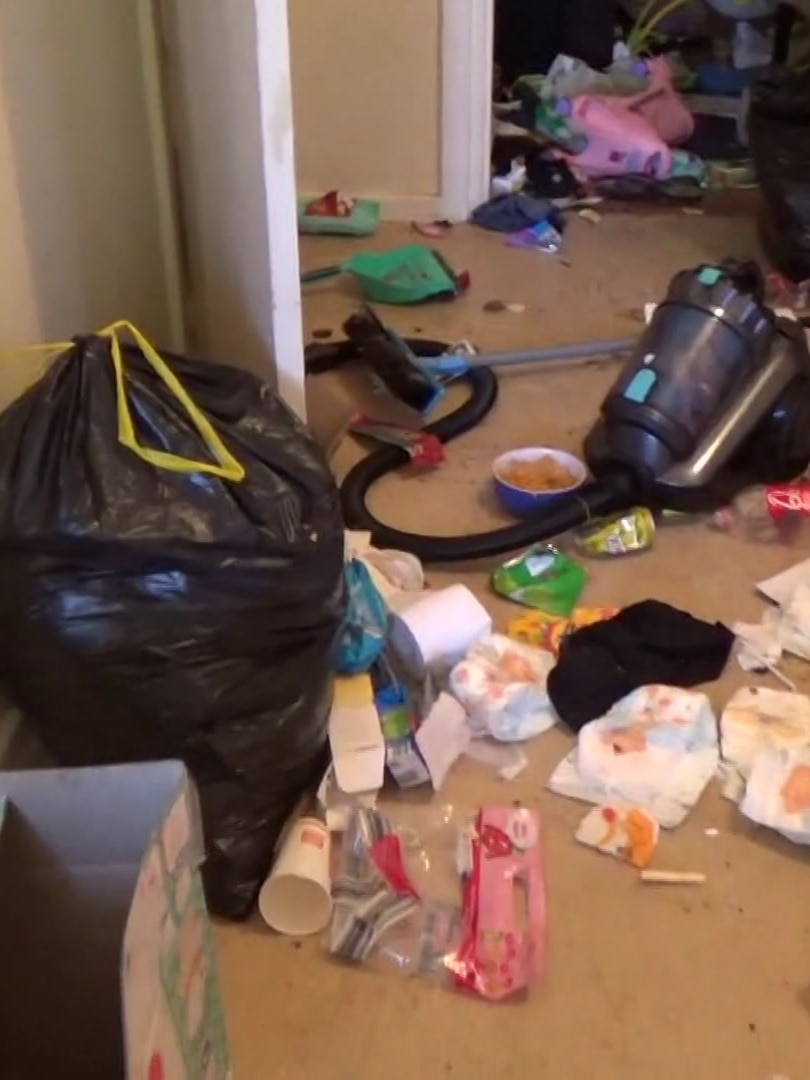An 11-week-old baby who died surrounded by rubbish on a fold-out couch would have been removed from the squalid conditions days earlier if child protection authorities had responded to an early warning, a coronial inquest has concluded.
WARNING: Readers may find details in this story distressing.
South Australian Coroner David Whittle held a 13-day inquest into the death of the baby in 2022 after he was found dead on the couch at his regional SA home in November 2018.
The inquest heard the baby had been sleeping on the couch with four other people, and video footage showed his cot was full of the family’s possessions.
The footage also showed the house covered in rubbish, cat faeces and soiled nappies, with no food in the kitchen and mouldy baby bottles.
The family had been the subject of 23 notifications to the Department for Child Protection (DCP) between 2015 and the baby’s death.
The inquest heard most of the notifications related to the squalid conditions the baby, and his two siblings, were living in.
“It was open to his mother, being his primary caregiver, to ensure he was put to sleep in a clean, well-set-up cot,” Mr Whittle said in his findings.
“However, the baby’s mother had consistently demonstrated over a number of years that she struggled to meet her parenting responsibilities.
“Concerns about the way in which she parented were frequently brought to the attention of DCP.”
The coroner found if DCP had responded to the November 2018 notification, the baby would have been removed from the home and not sleeping on the couch.
Mr Whittle said the first notification in relation to the baby was made six months earlier, before he was even born, and was a missed opportunity for the mother to change her living environment.
“This was the first time DCP was notified that the baby was to be born to a mother who was living in troubling circumstances that were unlikely suitable for a young infant,” Mr Whittle said.
“It was the first opportunity for DCP to intervene … and improve her preparedness for his arrival.
“The inability of DCP to respond to this notification, resulting in a closure of this notification without any further inquiries being made, was a significant missed opportunity.”
Death occurred in ‘unsafe sleeping environment’
In his findings, Mr Whittle said the cause of death was “not straightforward” because the baby was sleeping in an unsafe environment and had a respiratory tract infection.
He found the cause to be “unascertained”, but said the death occurred “in an unsafe sleeping environment, on a background of respiratory tract infection”.
Mr Whittle said that the baby’s mother, who was a teenager at the time, encountered authorities during her first pregnancy when two Unborn Child Concerns (UCC) were received.
The findings stated that the baby’s two older siblings were exposed to a verbal argument when one of their father’s threatened to kill the mother, but DCP closed the case “due to a lack of capacity across the office”.
Mr Whittle said multiple notifications were closed due to staffing shortages in the regional DCP office.
He recommended that in the next 18 months, DCP no longer close notifications due to a lack of resources and any closed cases be approved by DCP’s chief executive in writing.
He also recommended changes to the Children and Young People Safety Act so that if a parent is convicted of failing to provide for a child, DCP must apply to the Youth Court seeking a parenting capacity assessment if they still have other children in their care.
The DCP has been contacted for comment.
Posted , updated




